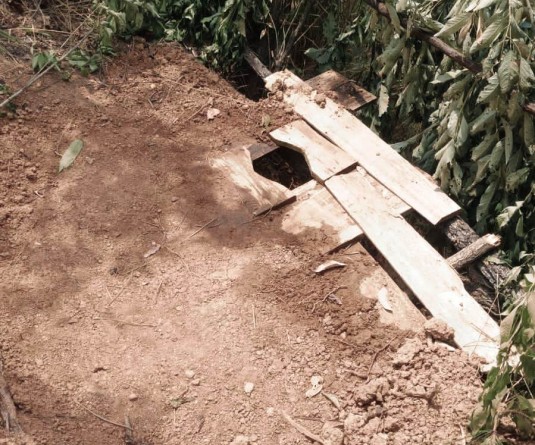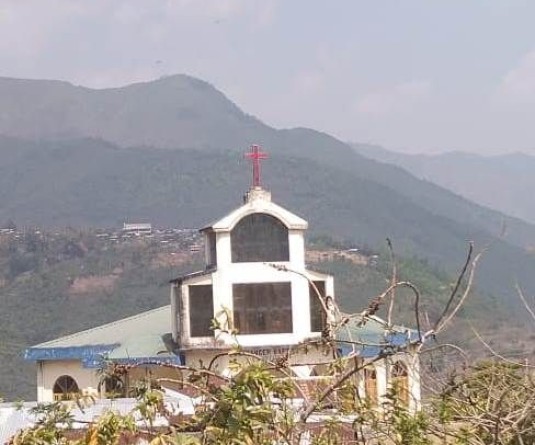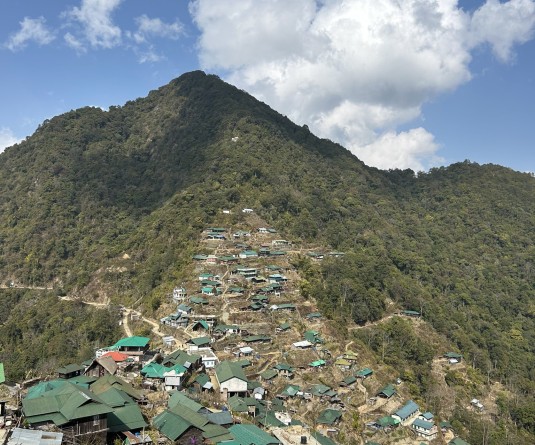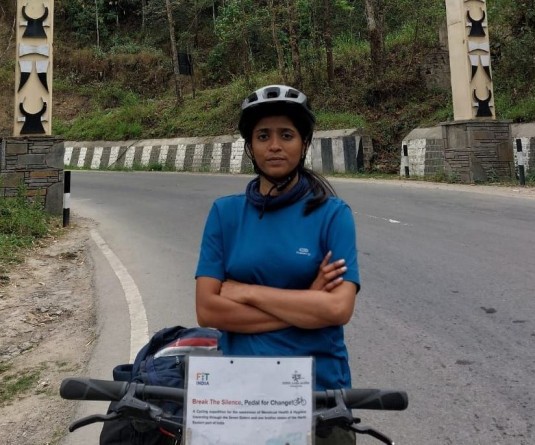
Moa Jamir
Dimapur | August 13
Clean Election Campaign (CEC) in Nagaland is hampered by systematic and ground realities which is resulting in a disconnect between the intention and desired outcome.
However, not all is lost. In small measures, the CEC is making positive interventions. The findings elicited during a one-month internship of 33 Oriental Theological Seminary students give some measure of hope and corrective steps.
For instance, in Tseminyu area, villages such as Kandinu, Ehunnu, Sishunu, K. Station, Ekhanu, and Tsonsa have already set up Sub-Clean Election Committees in responses to the Council of Rengma Baptist Church’s call. In Tseminyu village, NGOs and citizen will collaborate to stop door-to-door campaigns and provide a common platform for the candidates. Other areas promised to follow suit.
In Pughoboto area, the Sumi Students Union’s (SKK) ‘Amikucho Kikishe’ (Clean Election) campaign launched in April is also making an impact.
The Sümi Aphuyemi Baptist Akukuhou Küqhakulu (SABAK) Youth Secretary informed that the council has already formed the CEC Core Committee with its Executive Secretary as the convener.
Among others, the core committee guidelines include a common platform for candidates, no house to house campaign, ban on distributions of resources either in kind or cash. “Family accepting clean election will be hoisting a white flag in every village during the election,” the youth secretary said, adding that even if 10% of the population adheres, it would be a symbolic win.
Many students started the campaign skeptically on June 20, but when it ended on July 20, it transformed into a deeper involvement, as well as a mission call.
Churches must connect with non-church goers
All the teams reported the most positive outcomes were door-to-door interactions.
“Give time to church members to listen to their views and opinions. Do more home visitation,” was the common recommendation.
In most cases, the churches have lost connection with irregular and non-church goers resulting in trust deficit and further straining the relationship between them.
Skeptics and critics of both CEC and Churches tend to be highest among this group, a common phenomenon all over Nagaland.
A prophetic church
This demands farsightedness of the Church and active involvement in socio-political matters, apart from moral teachings.
“Naga Christians, church leaders, in particular, should understand that their calling of God is for the world, hence realize that they are citizens of this world. The dichotomy between ‘the church is sacred’ and ‘the world is profane,’ needs to be abandoned,” reflected Dr. Imliwabang Jamir who teaches Systematic Theology at OTS.
To break the nexus between money power and vote-selling, it is imperative that the church work for economic empowerment and education of its congregation.
“One remains skeptical about the end result as the VC of one of the villages in Tseminyu area asked, “What will we do if the booth is captured or money is splashed at the eleventh hour?” “Money is no doubt the greatest want of the people. The poor need it because they don’t have money; the rich want it because they like to maintain their prestige, high living style, and power. The fact that the former ‘needs’ money and the latter ‘wants’ money suggest that the rich are on the wrong side,” said Dr. Sashipokim Jamir, another OTS faculty.
Innovative and effective strategies
One strategy which successfully connected with the people was relating the voting issue with birthright.
Explaining the procedure, Jodovelu Shijo, a student in Pughoboto team said, “First, I would explain what birthright and identity are. The most prominent identity is our name so I would ask them to stand and say their names. After which I would question them if anyone would like to switch their names with others. They would always respond in negative. After which I would bring in the implication of this during an election.”
In other cases, pictorial depiction of aims and objective, as well as caricature on CEC, proved effective. The Youthnet study on previous election expenditure and relating it to existing state of affairs was another effective method.
The CEC as creating a good platform for benefit of future generation – for their sons and daughters—also connected with the people needing continuity beyond one election.
“OTS student’s interactions with the village elders, Goanburahs, church leaders, and villagers show that in general the Naga public mindset follows through assumption, rather than go by facts. The general public needs to be constantly reminded that ‘clean election campaign’ is a preparation for the benefit of our future generation, and do away with the defeatist mindset,” Dr. Imtiwapang concurred.
Election should be understood not fight for pride, but choosing good leaders for collective development.
Apolitical and capacity building
Start the campaign with the church leaders especially the deacon board, recommended one team.
If church leaders involve actively in politics, it will be better if they step down from the church position, recommended another.
Undue platform and importance to government officials and politicians in worship services must be discouraged.
All the team agreed that capacity building of educated villagers would be most effective as it would allay suspicion of other and also lessen the blame game. Church and village leaders, NGOs, and Civil organisations should work together for this.
“It appears that CEC is gaining some traction among the Nagas. Perhaps, the platform is ripe now to make this campaign a people’s movement. Organizing public rally all over Nagaland might transform from ‘campaign’ to ‘movement’,” opined Dr. Sashipokim Jamir.
The CEC must also be apolitical and non-denominational to correct the issue of schisms that currently exist in some villages.
The external factor
CEC must not only concentrate on voters but more on candidates, political workers and outside influences.
Identify agents and middlemen and have a seating with them, one team noted. Give awareness to Naga Political Groups not to involve in politics, noted another.
Many called for linking Aadhaar card with voter ID card to stop proxy voting. The Churches, civil societies and NGOs must collaboration with state machinery for clean E-roll.
The State Election Commission must not put away the onus of fair and free election to others but work alongside them.
Applying some of these recommendations might take the process from “its loss for us” to “it’s a gain for us” if we practiced clean and fair election.
Rev. Dr. Chekrovei Cho-O Director, Foundation for Church and Society & Associate Professor of Applied Theology, OTS "We learn through different ways and means, but nothing like 'learning by doing'. A month long internship on Clean Election Campaign in partnership with CRBC and SABAK under the aegis of NBCC was so enriching for both the students and faculty of OTS."
Ajungla T. Aier, Master of Divinity OTS
“The Internship program on Clean Election Campaign has broadened my perspective of our Naga society. I was never interested in election or politics. However, I now realized that many lives are governed by elections. Our society has become so corrupt that a lot of people think that it is alright to indulge in malpractices during elections. Our Naga society is in need of a transformation; we yearn for leaders who will walk the talk and bring transformation. It is time for everyone to vote right and elect leaders who will work for our Naga people. May Nagas live lives of integrity.”
Vitoka Chopi, Master of Divinity OTS
"Every big change begins with small things, and therefore this Clean Election endeavour should act as a stepping stone for something bigger to happen in our society. I hope each of us contributes to this small change to bring about a big change."
Seyievino Angami, Master of Divinity OTS
“Sheer ignorance is no more an excuse for us to deviate from living a Christian life. If all individuals alike recognize the importance of living an honest and greed- free life then our society is heading towards CHANGE. Individual transformation is the need of the hour.”
[ The 33 students from Oriental Theological conducted the Clean Election Campaign (CEC) in Tseminyu and Pughoboto area from June 20-July 20 2017. The writer travelled along with three OTS faculties who went there for final reflection and assessment on the completion of the campaign]





